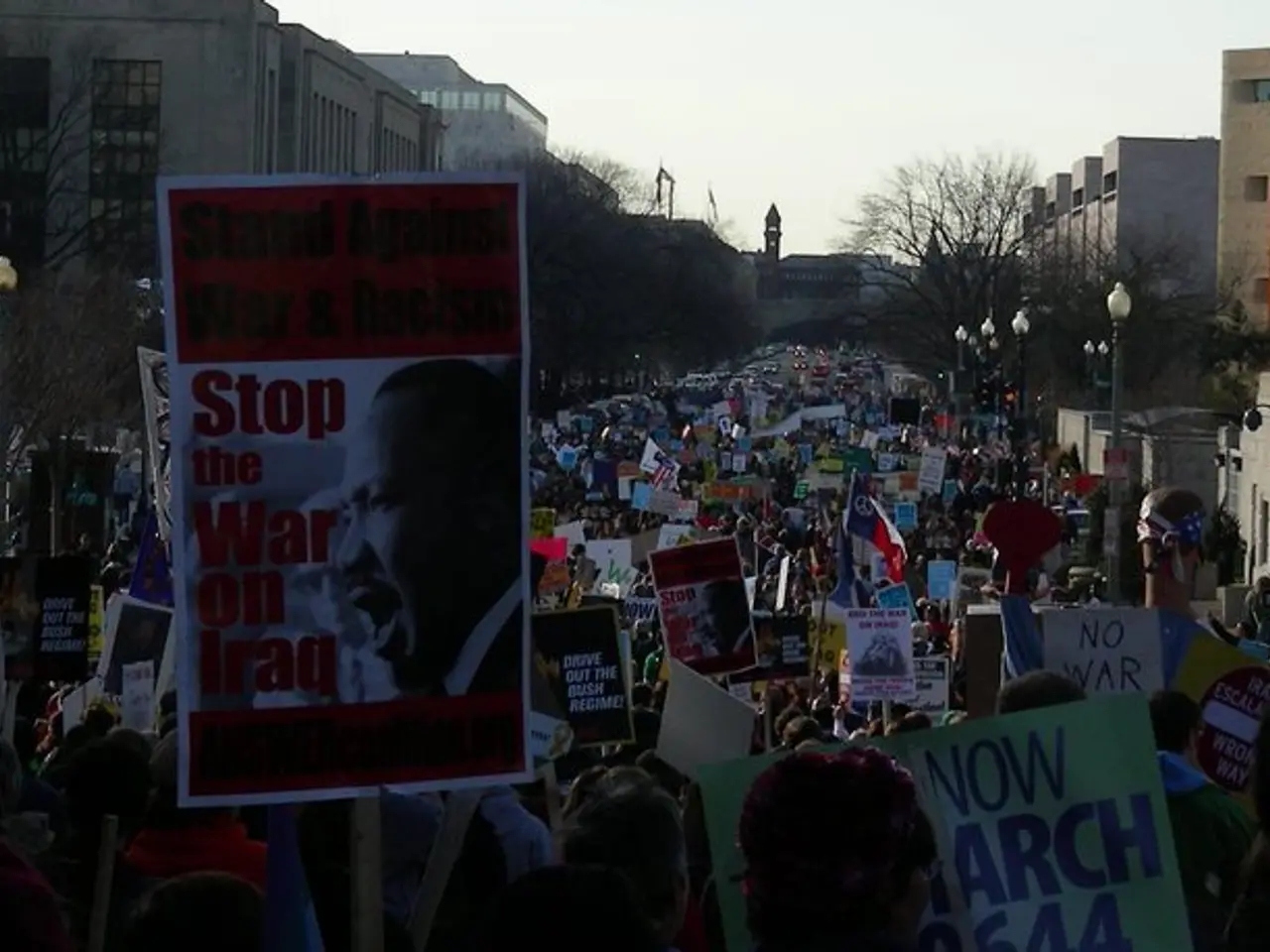Disuptes opposing the government taking place in multiple urban areas
In Serbia, civil unrest has been escalating for nearly nine months, with the latest incidents taking place in the cities of Novi Sad and Vrbas. Thousands of anti-government protesters gathered in more than a dozen Serbian cities on Wednesday evening, including these two cities, as well as Belgrade and Vrbas.
The protests, which began in November 2024, have been fueled by accusations of corruption, authoritarianism, and suppression of dissent. The demonstrations have grown increasingly confrontational, with police using batons, tear gas, smoke bombs, and flares, while some supporters of the ruling Serbian Progressive Party (SNS) have also attacked peaceful protesters.
Notable recent incidents include the use of excessive force and brutality by police, with reports of arrests involving beatings and detentions in unmarked vehicles. Videos circulating online show detainees kneeling before police in Novi Sad, which were later used by pro-government media. Masked groups believed to be linked to SNS supporters have also been attacking demonstrators, some of whom have criminal backgrounds.
Protesters are primarily calling for a transparent investigation into a railway station roof collapse that killed 16 people in Novi Sad on November 1, 2024, which is widely attributed to endemic corruption. They are also demanding early elections to resolve the political crisis and oppose the continued rule of the current leadership, which they label as a "fascist regime" by some participants.
In Novi Sad, incidents were reported between anti-government protesters and supporters of the ruling party, with both groups hurling flares and other objects at each other. Similarly, in Belgrade, exchanges of insults occurred between supporters of both sides, and objects were thrown between them. A heavy police presence has been deployed outside the Parliament in Belgrade to maintain order.
The protests in Vrbas involved confrontations between masked men and anti-corruption protesters outside the offices of President Aleksandar Vucic's party. President Vucic, however, has refused to call for early elections, denouncing the protests as a foreign plot to overthrow his government.
The intensity and persistence of the protests suggest ongoing instability with no immediate resolution yet. As the situation continues to unfold, the international community is closely monitoring the developments in Serbia.
[1] BBC News. (2025). Serbia: Protests continue amid calls for early elections. [online] Available at: https://www.bbc.co.uk/news/world-europe-58013640
[2] The Guardian. (2025). Serbia: Protests continue as government denounces calls for early elections. [online] Available at: https://www.theguardian.com/world/2025/aug/14/serbia-protests-continue-as-government-denounces-calls-for-early-elections
[3] Reuters. (2025). Serbia: Protesters call for early elections amid ongoing unrest. [online] Available at: https://www.reuters.com/world/europe/serbia-protesters-call-early-elections-amid-ongoing-unrest-2025-08-12/
[4] Al Jazeera. (2025). Serbia: Protests continue as calls for early elections grow louder. [online] Available at: https://www.aljazeera.com/news/2025/8/13/serbia-protests-continue-as-calls-for-early-elections-grow-louder
The ongoing protests in Serbia, as seen in Novi Sad, Vrbas, Belgrade, and other cities, are centered around calls for early elections to resolve the political crisis and oppose the current leadership. The international community is closely monitoring these events as the protests, fueled by accusations of corruption and authoritarianism, continue amid denials from President Vucic. (BBC News, The Guardian, Reuters, Al Jazeera)
These general-news events related to politics are escalating, with protesters labeling the current leadership as a "fascist regime" and confrontations between protesters and supporters of the ruling Serbian Progressive Party (SNS) becoming increasingly violent. (BBC News, The Guardian, Reuters, Al Jazeera)








